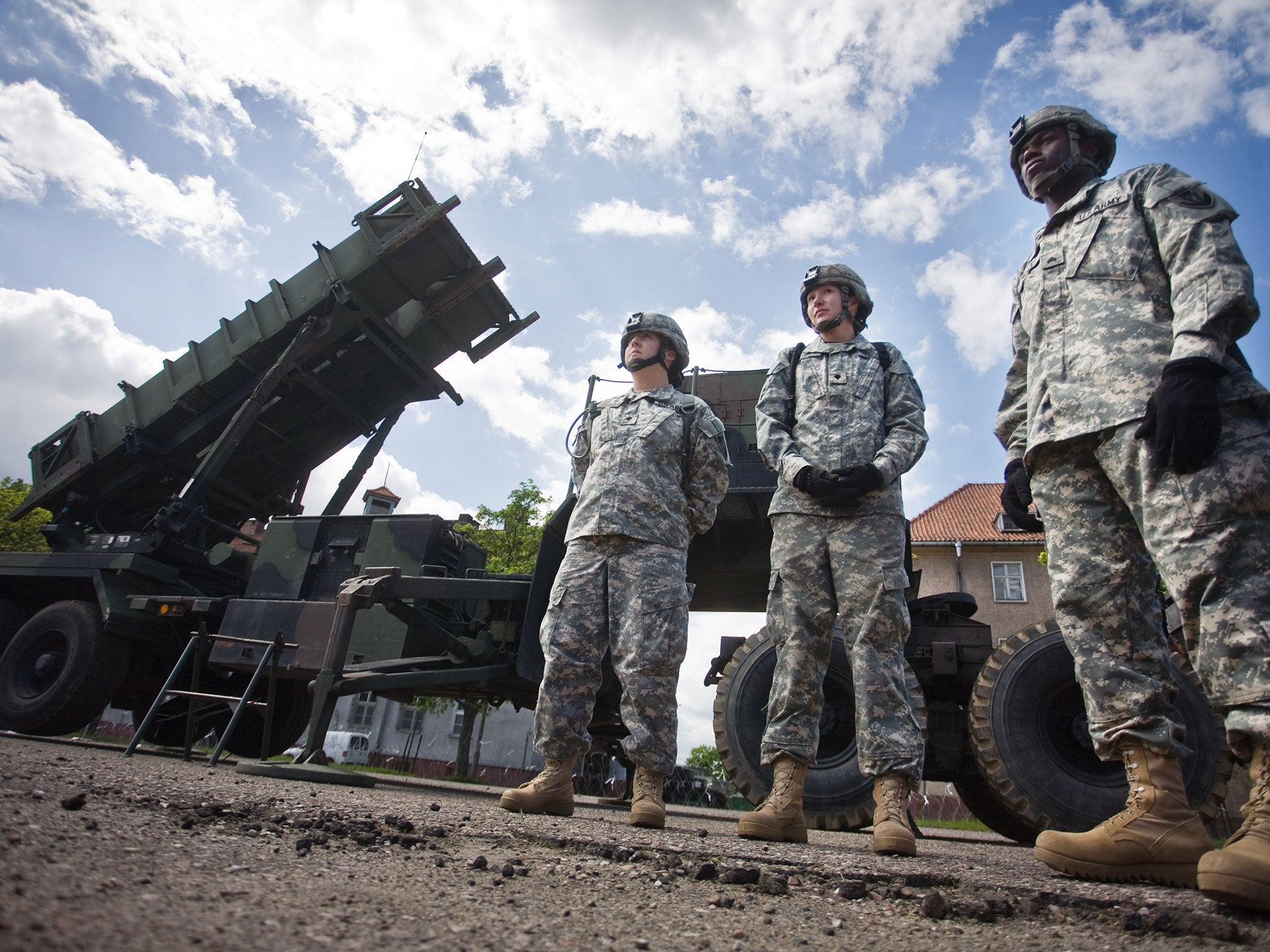US dismisses claim it is capable of launching 'surprise nuclear missile strike against Russia'
Ambassador to UN disarmament conference calls latest Russian allegations 'science fiction'

The Russian representative to a global conference on nuclear weapons has accused the US of massing missile defences capable of launching a “surprise nuclear missile strike against Russia”.
Viktor Poznikhir, deputy head of operations of the Russian general staff, was the latest official to accuse the US of “provoking” a new arms race with the Kremlin.
“The presence of American anti-ballistic missile (ABM) sites in Europe and ABM-capable ships in the seas and oceans close to Russia’s territory creates a powerful clandestine potential for delivering a surprise nuclear missile strike against Russia,” he told a conference in Geneva, according to a translation by Russian state media.
Robert Wood, the US’ permanent representative to the UN Conference on Disarmament, dismissed the claims as “science fiction”.
He insisted the deployment of American ballistic missile defence (BMD) systems were “not a threat to their strategic nuclear forces”.
“Russian and Chinese presentation in the Conference on Disarmament on US BMD was mostly science fiction,” Mr Wood wrote on Twitter.
Numerous countries, including Russia, have such systems in place but Vladimir Putin’s government has been angered by the stationing of American missiles operated by Nato in eastern Europe.

While launching the Aegis ashore system last year, Nato’s Secretary General Jens Stoltenberg said: “Missile defence is for defence.
“It does not undermine or weaken Russia’s strategic nuclear deterrent.”
But the Kremlin has attacked the US for “warmongering” and threatened to take its own “protective measures” in response to what it sees as a threat.
Rising tensions have driven a push for a new UN treaty to ban nuclear weapons, but the US, Russia, China, UK, France and other powers have dismissed the move as impractical and sat out of talks.
“The need for progress on nuclear disarmament has rarely been as urgent as it is today,“ UN Under Secretary-General for disarmament Kim Won-soo said as discussions opened this week.
More than 100 countries voted for a UN General Assembly resolution last year to start talks, with nations including Austria, Brazil and Ireland leading efforts to “negotiate a legally binding instrument to prohibit nuclear weapons, leading towards their total elimination”.
Nikki Haley, the US Ambassador to the UN, said that while a world without nuclear weapons was the ultimate goal, “we have to be realistic”.
She argued that a treaty would end up disarming nations “trying to keep peace and safety,” while “bad actors” would not sign on or comply.
Alarm is growing over the capacity of North Korea, which carried out two nuclear tests last year and has continued to fire ballistic missiles as recently as this month, in violation of UN resolutions.
Kim Jong-un’s government has claimed the development is a deterrent against “aggression” by the US, which has deployed a missile defence system in South Korea.
Donald Trump and other leaders have pointed to North Korea’s development programme as a justification for nuclear weapons but Pope Francis was among those calling on nations to “go beyond nuclear deterrence” and have the courage to overcome the “fear and isolationism”.
Opponents of the ban say the UN’s existing non-proliferation treaty has driven significant reductions in nuclear stockpiles and argue that a ban would not increase trust and transparency between nuclear states.
Britain has cut its nuclear forces by over half since the height of the Cold War, according to Matthew Rycroft, the UK’s Permanent Representative to the UN.
“The UK is not attending the negotiations on a treaty to prohibit nuclear weapons because we do not believe that those negotiations will lead to effective progress on global nuclear disarmament,” he told delegates in Geneva.
“They cannot and will not work. The British government firmly believes that the best way to achieve the goal of global nuclear disarmament is through gradual multilateral disarmament."
Join our commenting forum
Join thought-provoking conversations, follow other Independent readers and see their replies
Comments